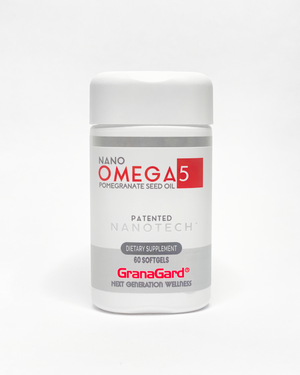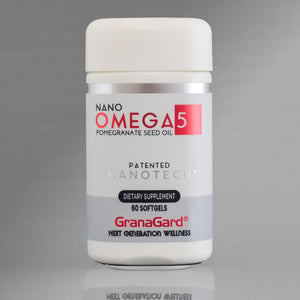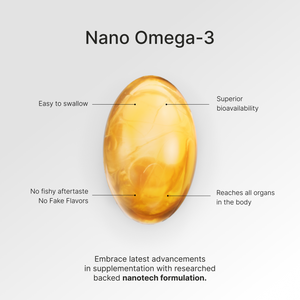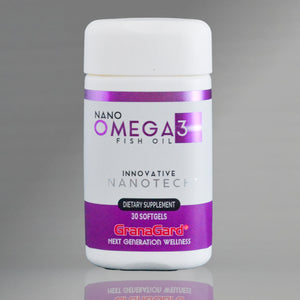Oxidative Stress
In the process of energy production from the food we consume, what are called free radicals and reactive oxygen species (ROS) are generated. These are oxidizing agents that can damage cell components.
Fortunately, our body has its own defense mechanism antioxidants, (What are antioxidants in simple words) made up of enzymes and other substances. This system is reinforced by the antioxidants we consume through a diet rich in fruits and vegetables. Under healthy conditions, together (the endogenous antioxidants and those obtained through diet) they are able to neutralize all the oxidizing elements produced in the normal metabolic pathway.
There must be a balance between oxidizing agents and antioxidants. When this balance is tipped in favor of oxidants (due to an excess of them or a lack of antioxidants), the condition known as oxidative stress occurs. (Oxidative stress: myth or reality)
In the condition of oxidative stress, the free radicals and ROS generated during metabolism, and not neutralized, could damage proteins, lipids, and carbohydrates, as well as DNA. These continuous damages lead to the onset of chronic degenerative diseases such as atherosclerosis, (Atherosclerosis oxidative stress and antioxidants) diabetes, (Oxidative stress can cause Type 2 diabetes) obesity, (Oxidative stress and obesity) Alzheimer's, and many more.
Excess Free Radicals
Metabolism is not the only source of free radicals. There can be other internal sources, such as inflammatory processes or intense exercise; and external sources like solar radiation, cigarette smoke, environmental pollutants, insecticides, solvents, chemical ingredients, some medications…
Fewer Internal Antioxidants
A very important aspect to consider is that after the age of 40–50, the production of our internal antioxidants (What are antioxidants in simple words) decreases. This partly explains why chronic degenerative diseases appear in people around those ages.
For these reasons, the use of antioxidant supplements was usually recommended after the age of 40 or 50. Antioxidant supplements, as their name implies, are formulations containing antioxidants and are consumed to cover the deficit of internal antioxidants and those obtained from the diet. (Antioxidants Foods)
What Science Has Proven
Clearly, controlling oxidative stress is possible for our body under healthy conditions. Our antioxidant defense system (What are antioxidants in simple words) is prepared to handle free radicals and ROS generated under normal conditions, but what happens when our lifestyle increases the number of oxidizing agents?
Consider a 30-year-old person who smokes, has a diet low in antioxidants, is obese, and lives in a polluted city… Would they have oxidative stress? (Oxidative stress: myth or reality) Should they consume antioxidant supplements? The answer is a resounding YES! Unless that person wants, in a few years, to become a new case of diabetes, atherosclerosis, or Alzheimer's.
What may seem like just a theory has been confirmed by research. Let's take a look at some examples.
In a study titled “Oxidative Stress in Association with Metabolic Health and Obesity in Young Adults,” participants aged 18 to 36 were included. According to the results, the researchers concluded: “Our findings suggest that metabolically unhealthy obese patients have more pronounced oxidative stress parameters compared to those with normal weight without metabolic disturbances.”
In another study titled “Oxidative Stress and Insulin Resistance,” conducted on 5,115 healthy men and women aged 18 to 30 years, living in Birmingham, AL; Chicago, IL; Minneapolis, MN; and Oakland, CA, the authors stated: “We observed positive associations between oxidative stress markers and insulin resistance in a non-diabetic adult population.”
One striking case is atopic dermatitis. In the publication titled “Oxidative Stress in Atopic Dermatitis,” the authors conclude: “Oxidative stress appears to be one of the important factors in the pathogenesis of atopic dermatitis. It not only directly damages the cellular structures of the skin but also enhances dermal inflammation and weakens the skin barrier function, allowing infections by microbial pathogens.” It is noteworthy that this disease is more common in children than in adults.
All this indicates that regardless of age, our antioxidant defense system is not always sufficient to counteract the number of free radicals and ROS present in the body, and it should be reinforced by diets (Antioxidants Foods) very rich in antioxidants or by supplements.
Next-Generation Antioxidant Supplements
Not all antioxidants are the same. They differ in solubility, bioavailability, and mechanism of action. For example: Vitamin C is water-soluble; it cannot act in fatty environments. Vitamin E, on the other hand, is lipophilic and cannot act in aqueous environments. Moreover, the mechanism through which an antioxidant neutralizes a free radical can be as simple as directly trapping it, or more complex, such as also stimulating the production of endogenous antioxidants.Through Nanotechnology (What is Nanotechnology in simple words) GranaGard® has created the next-generation antioxidant. Omega 5 (What are the benefits of Omega 5) is a powerful natural antioxidant, extracted from pomegranate seed oil, which has been transformed into a nanoemulsion, capable of dissolving in both lipidic and aqueous environments. This gives it great bioavailability, and its size allows it to reach all the organs in our body to exert its antioxidant power. As an antioxidant, Omega 5 has a dual mechanism of action, as it can directly trap free radicals and also stimulate the production of endogenous antioxidants.
For all these reasons, Nano Omega 5 by GranaGard® is the superior and most complete antioxidant, the next-generation antioxidant. Protect yourself with it!





